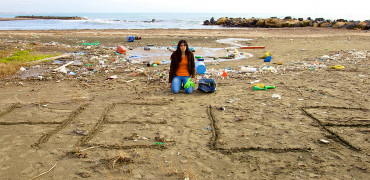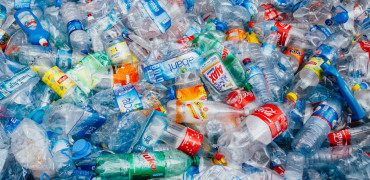At the end of August, the Kenyan government announced that anyone manufacturing, selling or using a plastic bag faces up to four years imprisonment or a fine of up to $40,000.
This must be the toughest law currently in existence regarding public use of plastic but plastic pollution is an urgent and growing global problem so, is the threat of jail really such an extreme proposal?
Along with Kenya, there are now over 40 countries around the globe that have taxed or banned the use of plastic bags.
Here in the UK, the Government introduced a 5p charge for single use plastic bags in 2015 and since the introduction of the scheme, the number of bags has dropped by more than 80%.
There is even the suggestion now that the price should rise to 10p per single use bag and some retailers have already adopted this without further legislation.
This is your choice ... and your responsibility
What’s wrong with plastics?
Earlier this week Greenpeace in Wales was reported as urging the Welsh Government to start taxing plastic waste, and this follows the previous decision to ban the tiny pieces of plastic used in cosmetics – otherwise known as microbeads.
These are plastic particles of less than one millimeter used in personal skin care products and toothpastes along with medical and research sectors.
Washed down the drain, these cannot be filtered out in sewage plants and they are therefore a major contributor to the problem as they are ingested by a whole variety of wildlife and marine life.
A plastic ocean
And there is a serious reason behind all this drive to reduce plastic waste as these microbeads and other plastics are now an endemic part of our oceans and are even entering the food chain.
If the idea of microscopic particles of plastic entering our food supply wasn’t scary enough, there are other climate change reasons why we really need to find ways to address this issue … and quickly.
The Plastic Oceans Foundation is a dedicated not-for-profit Californian organisation which is campaigning to highlight the problem and their website has some really staggering figures and eye catching infographics.
Why this matters
This is about more than just plastic waste
-
Water
97% of the planet's water is held in the oceans
-
Air
Over 70% of the oxygen we breathe comes from marine plants
-
Carbon Dioxide
The oceans also absorb 30% of the CO2 emissions we as humans produce
Global problem, local solution
So perhaps the threat of a jail sentence is not too extreme a measure to help us tackle this urgent problem after all!
But for all those I’ve ever met, who think it’s someone else’s problem or responsibility, or are despondent because the problem is so big that there is little one individual can do, I would strongly disagree.
The first thing any of us can and should be doing is questioning everything we throw away.
You may have seen reports on the horrific ‘fatberg’ that Thames Water is currently having to deal with and this has been caused by individuals carelessly and (I would argue) callously thinking that their one little bit of wet wipe or reject kitchen fat won’t be a problem.
Surely that shows what the collective impact of an individuals can do – albeit negatively.
If you (and I and everyone else) stops buying carrier bags, drinks bottles, etc. or at the very least disposes of them properly by recycling, then collectively, we really will be able to make a difference.
It’s your choice … and your responsibility!
Russell Jones is Communications Manager for Mitsubishi Electric, Living Environment Systems in the UK.
If you have any questions about this article, you can contact us via email. Or if you would like to tweet us, please follow our MEUK_LES twitter page.
We upload new articles every week so remember to check back regularly.
You can also sign up for our monthly newsletter below.



